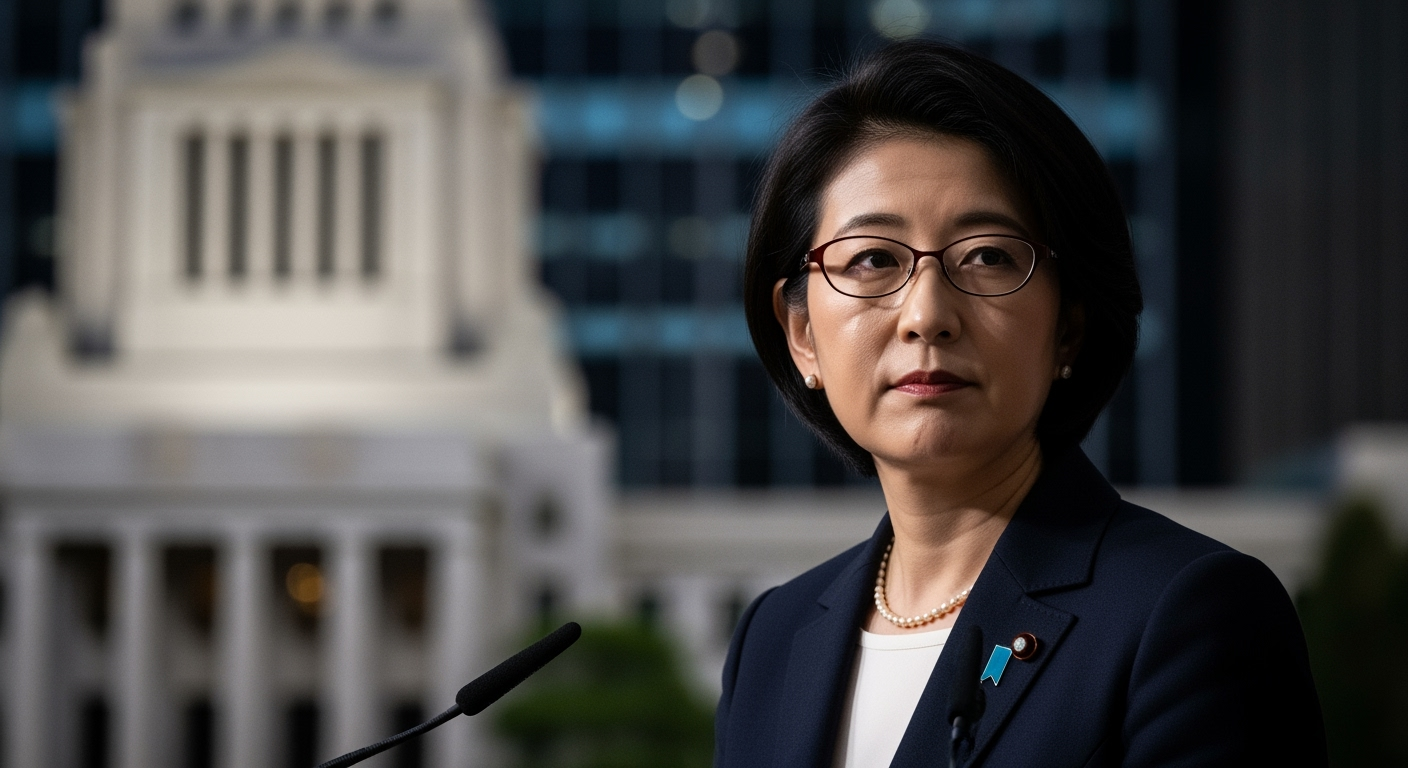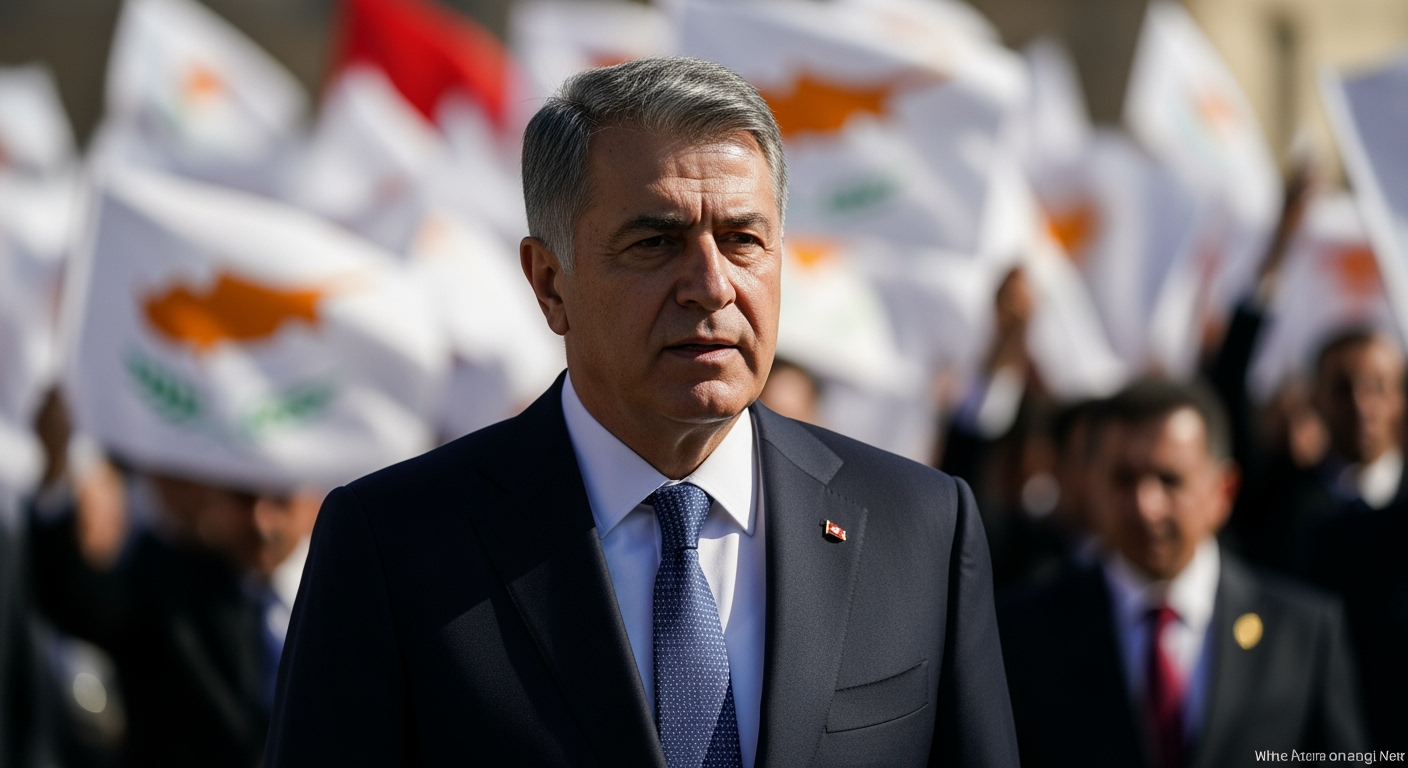Related Articles

Japan's First Female PM Sanae Takaichi Faces Formidable Economic and Security Tests

Iran's Gen Z Navigates a Treacherous Landscape of Crackdowns, Sanctions, and Conflict





The Turkish Cypriot community stands at a critical crossroads, grappling with a fundamental decision that will shape its identity and destiny for generations. Recent leadership elections have underscored a deep division between two distinct visions for resolving the decades-old Cyprus problem: one advocating for a sovereign two-state solution and closer integration with Turkey, the other pushing for reunification within a bizonal, bicommunal federation in line with United Nations parameters. This divergence represents more than a political preference; it reflects a profound debate over self-determination, international recognition, and the very nature of their future on the divided island.
The island of Cyprus has been ethnically divided since the 1974 Turkish intervention, which followed a Greek military coup aimed at uniting the island with Greece. The northern part of the island, unilaterally declared the Turkish Republic of Northern Cyprus (TRNC) in 1983, remains recognized only by Turkey, while the international community, including the United Nations and the European Union, recognizes the Greek Cypriot-led Republic of Cyprus as the legitimate authority over the entire island. A ceasefire has been in place since 1974, with UN peacekeepers maintaining a buffer zone, yet a permanent solution has remained elusive. Numerous UN Security Council resolutions have called for respect for the sovereignty, independence, and territorial integrity of Cyprus, demanding the withdrawal of foreign forces and condemning actions that purport to create an independent state in northern Cyprus.
The 2020 presidential election in the TRNC emerged as a pivotal moment, explicitly framing the contest as a "referendum on the two-state solution versus federation". The incumbent, Mustafa Akıncı, an independent and a long-standing advocate for reunification, campaigned on a platform seeking a federal solution. He emphasized a unified Cyprus within the EU and opposed Turkey's increasing influence. Akıncı had a history of cross-communal cooperation, notably during his 14-year tenure as Mayor of North Nicosia, where he collaborated with his Greek Cypriot counterpart on projects like the Nicosia Master Plan. In contrast, Ersin Tatar, then Prime Minister and leader of the National Unity Party (UBP), championed a two-state solution, advocating for sovereign equality and a strengthened relationship with Ankara.
The election, originally scheduled for April 2020 but postponed due to the COVID-19 pandemic, saw a run-off between Akıncı and Tatar on October 18, 2020. With a voter turnout of 67.29% in the second round, Ersin Tatar secured 51.74% of the vote, narrowly defeating Akıncı, who garnered 48.26%. This victory marked a significant shift in the political landscape, aligning the Turkish Cypriot leadership more closely with Ankara's official position.
Ersin Tatar's presidency has been characterized by a firm commitment to a two-state solution, a stance strongly endorsed by Turkey. His core message asserts that negotiations cannot resume unless the Turkish Cypriots' "sovereign equality" is recognized, or at the very least, until the international community facilitates what he refers to as the "three Ds": direct trade, direct flights, and direct contacts. These measures, he argues, would create conditions of parity without formal recognition, challenging the existing international diplomatic blockade.
Tatar's approach mirrors Turkey's official position, which, particularly since the collapse of the Crans-Montana talks in 2017, has declared the federal model "closed". Turkish President Recep Tayyip Erdoğan has consistently stated that any future Cyprus talks should occur between two states based on "sovereign equality," not between two communities. This shift represents a deliberate departure from decades of federation-based efforts. Supporters of the two-state model view it not as isolation, but as liberation from a negotiation framework they believe the Greek Cypriot side exploits to maintain the status quo.
Under Tatar's leadership, there have been initiatives reflecting this vision. For instance, five days before the first round of the 2020 election, Tatar announced a partial reopening of Varosha, a ghost town fenced off since the 1974 conflict. This move, condemned by the international community and the Republic of Cyprus, was seen as an effort to assert Turkish Cypriot control and leverage in future negotiations. Tatar has also proposed exchanging Turkish Cypriot-owned properties in the south with Greek Cypriot-owned land in the north, aiming to resolve one of the most politically charged issues arising from the division. Such policies, while controversial, aim to solidify the TRNC's de facto status and build functional legitimacy through regional alliances, bypassing traditional Western diplomatic channels.
However, this path also entails increasing dependence on Ankara. Many Turkish Cypriots express concerns that their agency as a community is being undermined by Turkey's growing influence. The 2020 election itself was marred by allegations of overt interference from the Turkish government on Tatar's behalf, creating a "rift with Turkish president Erdoğan" and raising questions about the independence of Turkish Cypriot political choices.
The alternative vision, advocating for a bizonal, bicommunal federation, remains a significant political force among Turkish Cypriots, particularly within opposition parties. Former President Mustafa Akıncı, a fervent supporter of reunification, consistently promoted this model during his term. Current opposition leader Tufan Erhürman, head of the Republican Turkish Party (CTP), also champions a federal solution, emphasizing political equality and aligning with UN parameters.
Proponents of the federal model argue for "results-oriented negotiations" within the UN framework, built on principles such as non-renegotiation of political equality, a clear timetable to prevent endless talks, honoring previously agreed issues, and safeguards against reverting to the old status quo if negotiations falter. This approach is rooted in the belief that true legitimacy and long-term stability for Turkish Cypriots lie in engagement with the Greek Cypriots and the wider international community, rather than through detachment and deepening isolation.
The federal solution, based on UN Security Council resolutions, envisages a unified state with a single sovereignty, international personality, and citizenship, comprising two politically equal communities in a bizonal and bicommunal federation. Key elements often include a rotating presidency and shared decision-making processes, which have historically been points of contention with the Greek Cypriot side. Those who advocate for this path warn that a two-state model jeopardizes Turkish Cypriot rights, such as access to shared resources like hydrocarbons, and perpetuates the community's international isolation. They stress that while leaders may have equal status at the negotiating table, outside these talks, one side represents a recognized EU and UN member state, while the other leads an unrecognized entity, leading to a loss of international legitimacy.
The international community, including the United Nations and the European Union, overwhelmingly supports a comprehensive settlement based on a bizonal, bicommunal federation. UN Security Council resolutions have consistently reaffirmed this framework. Efforts to achieve reunification have been ongoing for decades, with various peace talks and plans, such as the Annan Plan in 2004 and the Crans-Montana talks in 2017, ultimately failing.
The Republic of Cyprus adamantly opposes any moves that might lend legitimacy to the TRNC or its claims of sovereign equality, viewing them as undermining the prospect of reunification and violating international law. This stance contributes to the diplomatic deadlock, as Greek Cypriots are often reluctant to engage in actions that could be interpreted as recognizing Turkish Cypriot control in the north. The EU, while formally recognizing the Republic of Cyprus, finds itself in a challenging position, with an unresolved dispute in its own territory and some member states wary of confronting Turkey.
The geopolitical landscape of the Eastern Mediterranean further complicates the situation, with increasing militarization and heightened tensions. Guarantor powers—Greece, Turkey, and the United Kingdom—also play a significant role. Turkey's strong backing of the two-state solution stands in contrast to the historical positions of Greece and the UK, which have generally supported a federal solution.
The debate surrounding the future of Turkish Cypriots transcends mere political rhetoric; it delves into fundamental questions of identity, survival, and the aspiration for a recognized place in the international arena. The choice between a two-state solution and a federal reunification carries significant implications for economic stability, human rights, and regional security.
A continued pursuit of the two-state model, while appealing to a segment of the population that seeks greater autonomy and direct ties with Turkey, risks further international isolation and dependence on Ankara. Conversely, a renewed push for a federal solution within UN parameters offers a path towards international recognition and integration within the EU, but it demands concessions and a willingness from both sides to overcome decades of mistrust and failed negotiations. The enduring pattern of failed talks and competing solution models has deepened divisions and fostered a sense of disillusionment among the populace. As the Turkish Cypriot community looks ahead, the path chosen by its leaders will determine not only its diplomatic trajectory but also its social fabric and economic viability in an increasingly complex Eastern Mediterranean region.